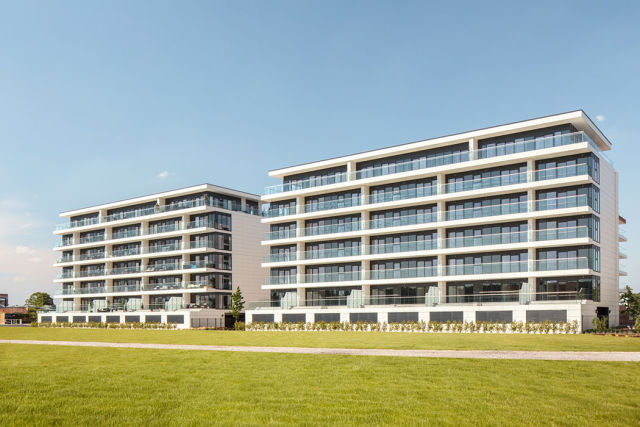WES Hotspot reduces the risk of fire at Newbury Racecourse development

WES Hotspot fire detection and prevention devices from Ramtech Electronics have been installed across a £100 million development by David Wilson Homes at Newbury racecourse.
WES Hotspot is designed to detect abnormal heating of electrical connections, components and equipment and is an effective pre-ignition solution that stops electrical fires from occurring, limiting the risk to occupants and damage to buildings and equipment.
The Newbury Racecourse project comprises of 10 separate blocks totalling 366 apartments, with the majority being offered for private sale. The top floor of each block consists of penthouse suites.
Incorporating WES Hotspot in consumer units, distribution boards, sockets and electrical equipment, helps to protect buildings and occupants from potential fires. WES Hotspot utilises the patented technology of Thermarestor to monitor critical connections within the electrical installation and activates as soon as any overheating is detected.
Once WES Hotspot is activated within the landlord’s distribution boards in Newbury, it can instantly send an alert to FM staff via the fire alarm system. It can also signal via any notification system - or by using the WES REACT mobile app. This early notification of an electrical fault and the overheating of connections, transforms what would ultimately be an emergency call to the fire service, into a simple maintenance issue.
Within the apartments themselves, WES Hotspot is installed inside consumer units and has been configured to automatically disconnect the power supply in the event of abnormal temperatures being detected. In removing this potential source of ignition, WES Hotspot provides the highest level of pre-ignition protection to electrical installations, by actively preventing electrical fires.
John Newbury from Ramtech Electronics says: “Our WES Hotspot has the ability to turn an emergency situation into a simple maintenance task. It stops fires before they start and that means it can save lives. We firmly believe that fitting this technology will become routine, just as it is now for RCDs and smoke alarms.”







